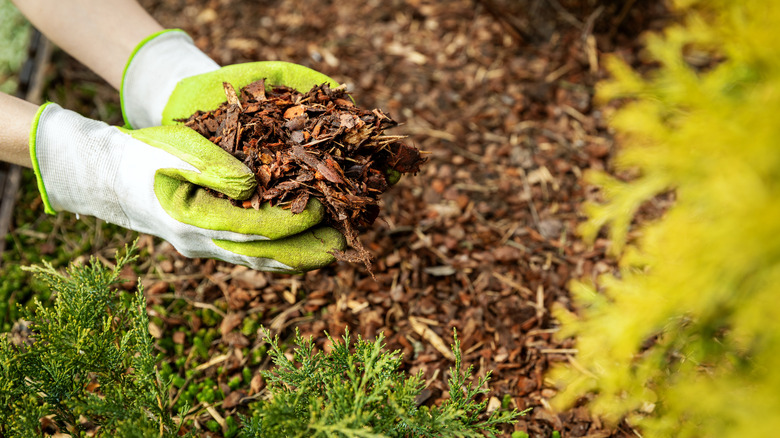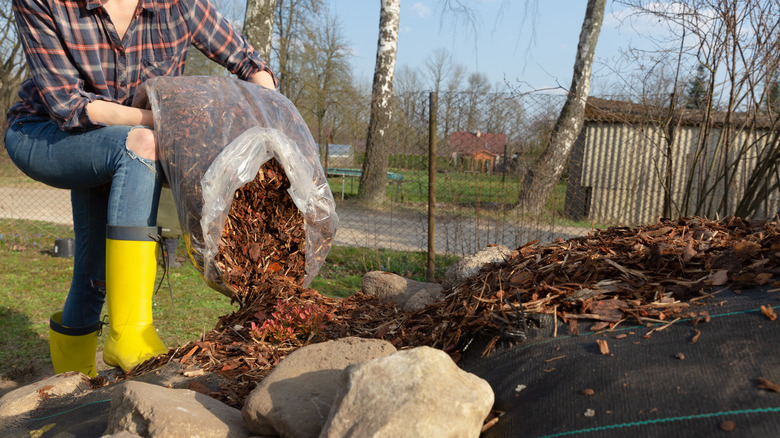The Pros And Cons Of Using Natural Pine Bark Mulch In The Garden
When choosing the best type of mulch for your garden, you have a wealth of organic and inorganic products that you can select. One of these is natural pine bark, which is a popular mulching option as it's readily available, and looks attractive. There are many pros to using pine bark mulch, but also a few cons that you might want to consider. This type of mulch offers all the usual advantages of mulching, such as weed prevention, moisture retention, and soil insulation, but it may cause a nitrogen deficiency as it decomposes.
Let's start with the pros: Natural pine bark mulch is a byproduct of the forestry industry, so it's a great choice for environmentally-conscious gardeners because it puts a renewable resource to good use. It's also attractive when used on garden beds around trees and shrubs, and provides excellent cover over the ground which can stop weeds from growing. Those that do manage to break through are generally easy to spot and pull out. The mulch can insulate the soil in winter which helps to protect plants during cold weather. In addition, pine bark can provide plants with valuable nutrients as it breaks down. Using natural pine bark can also prevent soil erosion during periods of heavy rainfall, because any large raindrops will land on the bark rather than the bare ground. This can prevent the soil from being washed away. That's why it's one of the best types of mulch if you live in a wet climate.
What are some disadvantages to using natural pine bark mulch?
While, in general, the pros do outweigh the cons, there are a few disadvantages to using natural pine bark mulch that you should be aware of. Pine bark is relatively lightweight, and if used as nuggets, these can wash away during periods of heavy rainfall. Another problem is that if the mulch is washed down into the ground, it could tie up valuable nitrogen as it is being decomposed by the microorganisms in the soil. This could mean that you'll have to supply additional fertilizer to your plants if you notice a nitrogen deficiency.
You also want to ensure that you don't over-do your yard with natural pine bark mulch year after year, as this may acidify the soil over time. This mulch has a pH in the range of 3.5 to 4.5, and while this won't alter your soil pH quickly, as evidenced by a study conducted by the Michigan State University, it may eventually make it more acidic if you're constantly topping off with more of the same. Plus, there are other things that can happen to your garden if you use too much mulch, such as increased fungal infections. The most important points to remember when using pine bark mulch in your yard is to lay it at a maximum of 3 inches deep, keep it a little distance away from tree trunks, and monitor your plants for any nutrient deficiencies.

